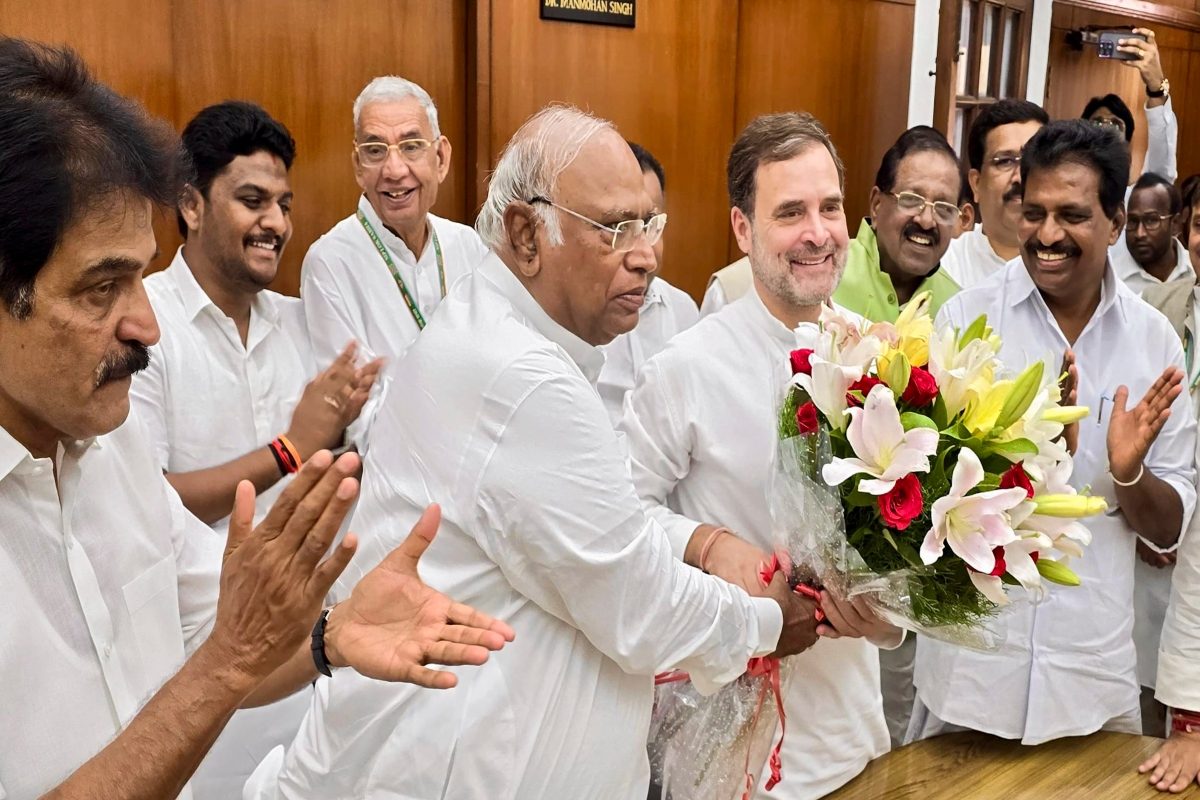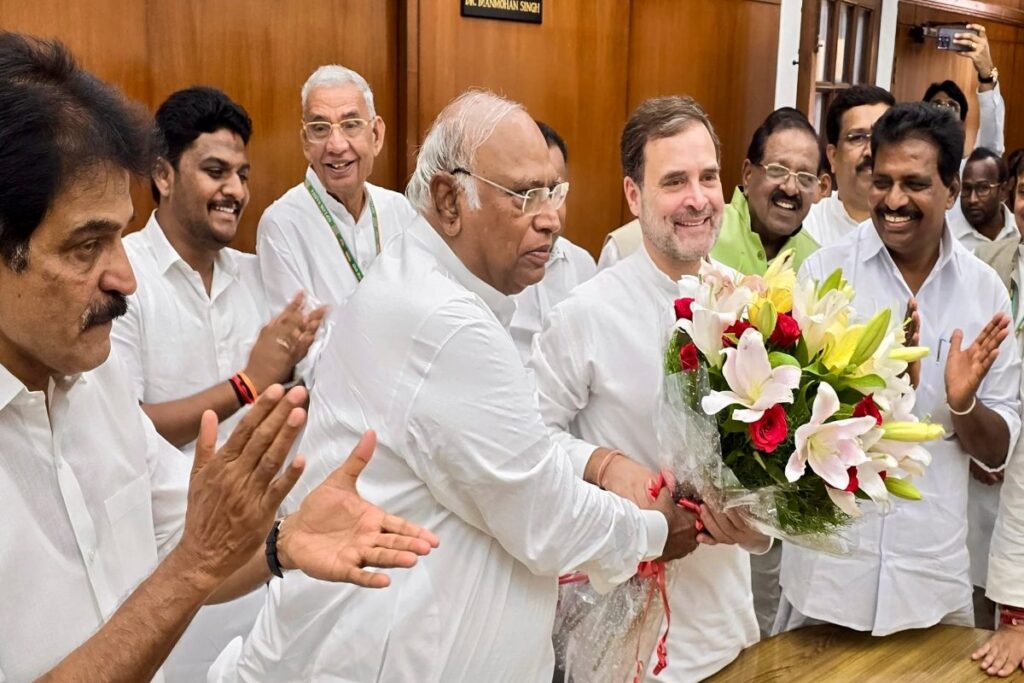

By K Raveendran
Finance Minister Nirmala Sitharaman’s response to the opposition’s critique of the budget, coupled with Rahul Gandhi’s performance, has turned out to be the highlight of the debate on the budget in the Lok Sabha. The crux of the opposition’s argument was that the budget disproportionately favoured Bihar and Andhra Pradesh, states of considerable political importance for the ruling BJP government, while neglecting others. Sitharaman’s rebuttal, while robust in defending the budget’s allocations, seems to have been more focused on addressing the specific points raised rather than engaging with the underlying sentiment of the criticism.
The opposition’s contention primarily revolved around the notion that the budget’s allocations were strategically crafted to appease key political constituencies. They argued that, with the Modi government’s survival heavily reliant on maintaining the axis with Bihar and Andhra Pradesh, the budget’s provisions were skewed in favour of these states. This, they claimed, came at the expense of equitable development across the rest of the country. Sitharaman’s reply, while addressing these allegations head-on, appeared to be more of a technical defence rather than an engagement with the broader implications of the criticism.
Sitharaman’s defence was detailed and meticulous, emphasizing that the budget allocations were based on objective criteria and legitimate needs. She pointed to various programmes and schemes that had been launched to benefit multiple states, arguing that the budget’s intent was to ensure balanced development across the country. Her approach was to counter each allegation with data, demonstrating how funds were distributed and how various states were benefiting from central schemes. However, this defence, while factually accurate, often seemed to miss the essence of the opposition’s broader concern: the perception of political favouritism and its implications for fair governance.
To assess the efficacy of Sitharaman’s defence, it is essential to juxtapose the current budgetary situation with that of 2014, prior to the Modi government assuming power. The economic context has significantly evolved over the past decade, with inflation rates soaring and prices nearly doubling. This shift has profound implications for budget allocations and their impact on different states. The opposition’s critique is grounded in the observation that, in the face of escalating prices and a cost-of-living crisis, the budget appears to prioritize political expediency over addressing the urgent economic needs of the populace.
In 2014, when the Modi government first came to power, the economic landscape was markedly different. Inflation was relatively controlled, and the cost of essential goods and services was lower compared to the present. The focus of budgetary allocations then was more on stimulating growth and infrastructure development, with less immediate pressure from the high cost of living. Fast forward to the current scenario, and the economic pressures are significantly more intense. Prices have nearly doubled since 2014, placing a considerable strain on household budgets and amplifying the need for more targeted and equitable fiscal policies.
Given this context, the opposition’s argument that the budget is insufficiently addressing the current economic strain becomes more compelling. While Sitharaman’s defence highlighted the distribution of funds and various schemes, it did not fully address how the budget adapts to the present economic reality. The focus on political calculations, according to the opposition, overshadows the urgent need for measures that could mitigate the impact of skyrocketing prices on everyday life.
The opposition’s critique also touched on a deeper issue of governance: the balance between political strategy and equitable development. The budget’s heavy allocation towards Bihar and Andhra Pradesh, which the opposition argues is driven by the Modi government’s political strategy, raises concerns about whether the distribution of resources is genuinely reflective of need or simply a strategic manoeuvre to secure political loyalty.
Sitharaman’s response fell short in acknowledging the broader implications of their criticisms. The financial figures and allocations she presented were accurate, yet they did not fully address the question of whether these allocations were adequate in the face of increasing economic hardship for ordinary citizens. Her defence was well-reasoned in terms of logistics and data but missed engaging with the emotional and practical aspects of the opposition’s argument.
Rahul Gandhi’s performance emerged as a defining moment in the discussion, capturing attention and igniting controversy that continues to resonate in political circles. His intervention was more than a mere critique of the budget; it was a strategic effort to spotlight what he and his party perceived as fundamental flaws in the government’s fiscal and other policies. His assertion on caste census drew sharp reactions not only from the finance minister but also from other key figures in the ruling BJP, including Anurag Thakur, amplifying the contentious nature of the debate.
Gandhi’s performance was marked by a clear and structured argument. He highlighted how the budget, rather than providing relief and stimulating equitable growth, seemed to be more about securing political loyalty in key states. His focus on the disparity in fund distribution was not merely a technical critique; it was a broader indictment of the government’s priorities and approach to economic governance.
The impact of his intervention was magnified by the fact that it resonated with a segment of the public that has been increasingly critical of the Modi administration’s handling of economic issues. His arguments tapped into widespread discontent over rising prices and economic inequality, positioning him as a vocal advocate for those who feel neglected by current policy measures. This positioning gave his critique a significant emotional and political weight, making it a central topic of discussion in the Lok Sabha debate. (IPA Service)



